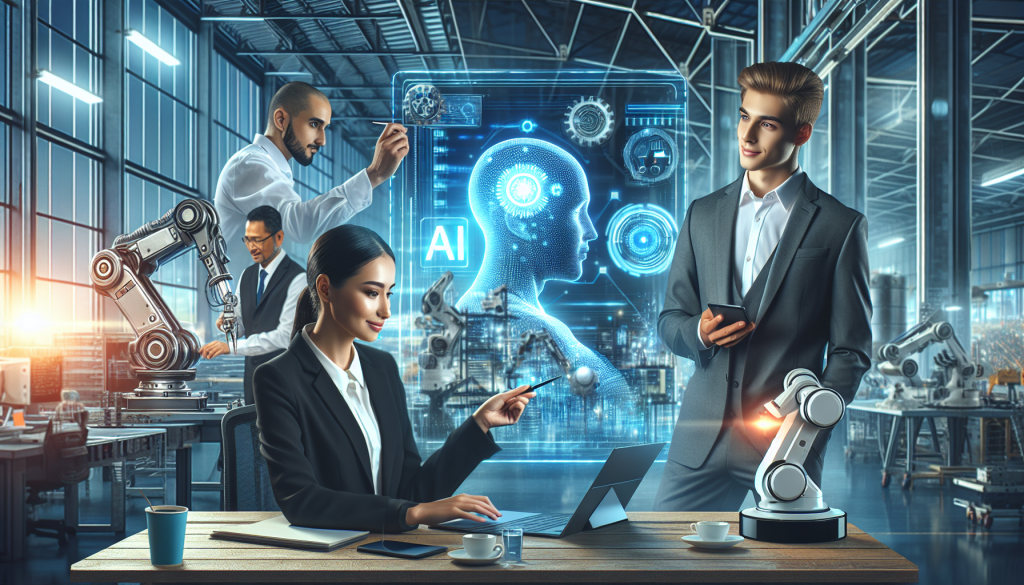
Artificial Intelligence (AI) is no longer a concept confined to the realm of science fiction or academic research; it has evolved into a crucial component of modern business strategy. Across diverse industries, AI is reshaping operations, enhancing efficiency, and opening new avenues for innovation. The business of AI is not just about integrating smart technologies but about transforming the very fabric of industries to foster growth, improve customer experiences, and drive competitive advantage.
At the heart of AI’s transformative power is its ability to learn and adapt. Technologies such as machine learning and natural language processing have emerged as indispensable tools for businesses. By analyzing vast amounts of data, AI systems can uncover patterns and insights that enable companies to make informed decisions. These capabilities are particularly beneficial in fields like finance, where AI models can predict market trends, assess risks, and automate complex trading processes.
In the healthcare sector, AI is revolutionizing patient care and medical research. Advanced algorithms can process complex medical data to assist doctors in diagnosing diseases more accurately and swiftly. Furthermore, AI-driven applications can personalize treatment plans, monitor patient progress in real time, and even predict potential health crises before they occur. This not only enhances patient outcomes but also optimizes the workflow for healthcare professionals.
Retail is another industry where the business of AI is thriving. From predicting consumer behavior to managing supply chains, AI is instrumental in refining retail operations. Personalized shopping experiences powered by AI recommend products based on browsing history and purchase patterns, leading to increased customer satisfaction and sales. Moreover, AI-powered chatbots enhance customer service by providing instant responses to queries, thus improving user engagement and loyalty.
Transportation and logistics industries are also experiencing the profound impact of AI. Autonomous vehicles, perhaps the most talked-about application, promise to transform urban mobility by reducing road accidents and traffic congestion. AI systems optimize route planning and inventory management, ensuring timely deliveries and reducing operational costs. Consequently, logistics companies can maintain high efficiency while minimizing their environmental footprint.
In the realm of marketing and advertising, AI allows for unprecedented levels of customization and precision. By analyzing consumer data, AI can create highly targeted and personalized advertising campaigns. This improves not just engagement rates but also return on investment by ensuring that marketing efforts reach the right audience at the right time. AI tools also facilitate A/B testing at a scale and speed unattainable by human marketers, enabling rapid adjustments to strategies.
Despite these advancements, the business of AI is not without its challenges. The integration of AI technologies requires significant investment, both in terms of finances and human capital. Businesses need to ensure that their workforce is well-equipped to work alongside AI systems, necessitating ongoing training and development. Moreover, as AI tools increasingly handle sensitive data, issues related to privacy and security become paramount.
Legal and ethical considerations also play a critical role in the business of AI. Companies must navigate a complex landscape of regulations while ensuring that their AI systems operate transparently and ethically. The potential for bias in AI algorithms, stemming from the data used to train them, mandates rigorous oversight and governance.
Nevertheless, the potential benefits of AI in business far outweigh these challenges. As industries continue to embrace AI, the focus is shifting towards developing strategies that harness its full potential. Programs aimed at senior leaders and decision-makers are gaining popularity, emphasizing the importance of strategic foresight in driving AI initiatives.
For small and medium-sized enterprises, AI offers immense opportunities to compete with larger counterparts. By automating repetitive tasks, AI enables small businesses to allocate resources more effectively, thereby enhancing productivity and innovation. Furthermore, AI applications tailored to small business needs are becoming increasingly accessible and affordable, spurring growth across diverse sectors.
The business of AI is a testament to the transformative power of technology. As AI continues to advance, industries are poised to undergo further evolution, becoming smarter, more efficient, and more responsive to changing market dynamics. Companies that embrace AI today are not just optimizing their operations but are redefining the future of their industries. By harnessing the potential of AI, businesses can unlock unprecedented possibilities, driving progress in an interconnected and rapidly changing world.